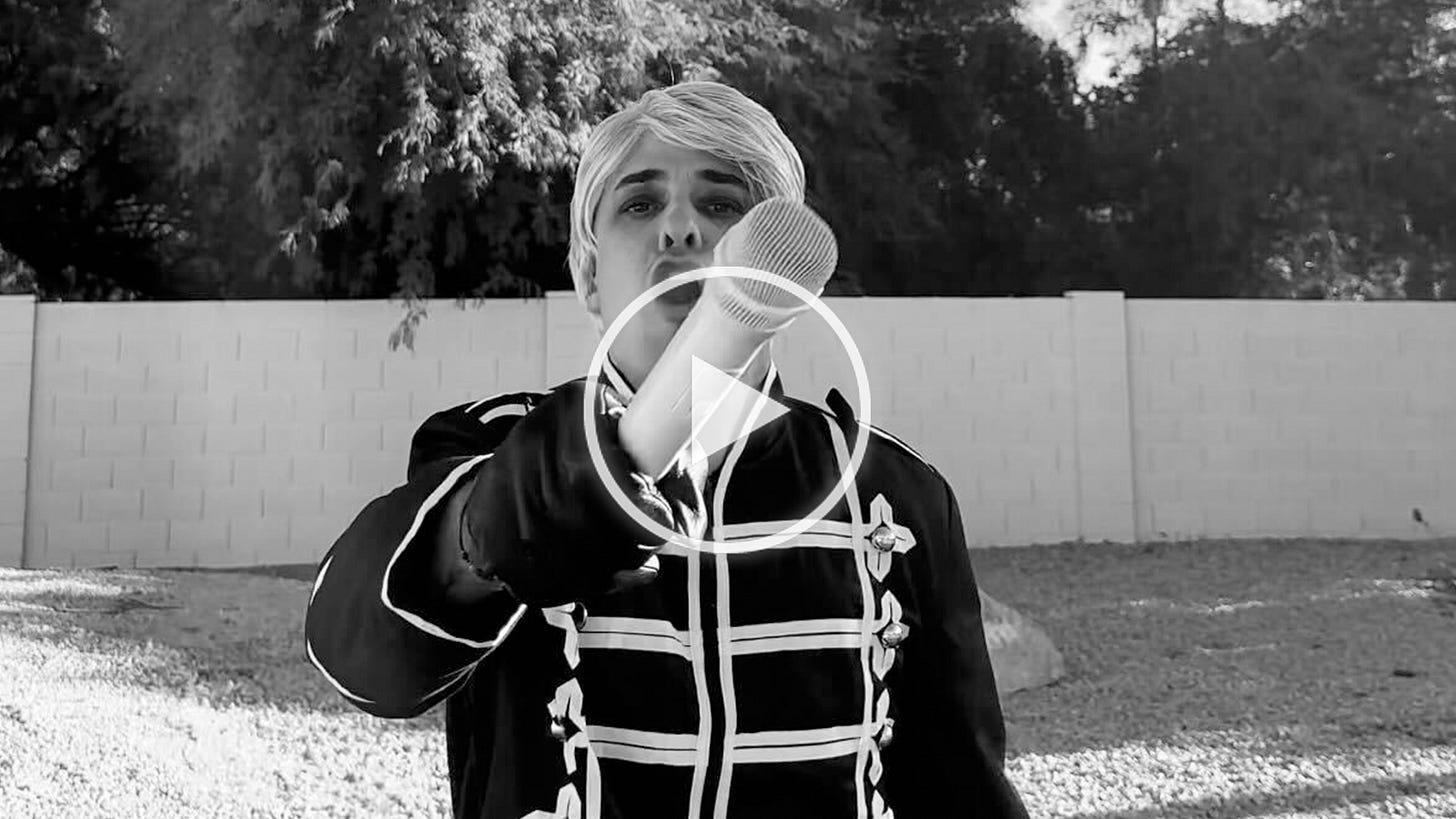How the CMO Role Is Being Rebranded
Insider intel from Silicon Valley’s top CMO recruiters on what founders want now.
The old CMO archetype — the tenured operator with a big-team résumé and a bulletproof deck — isn’t what founders are hiring for anymore.
In today’s AI-driven, hyper-competitive market, CEOs are looking for something else entirely: builders who can move fast, operate tactically, and earn trust through execution, not just vision. That shift isn’t theoretical — it’s playing out right now in real searches at some of the fastest-growing companies in tech.
I sat down with Cameron O’Brien and Amber Weinberg of Aperture Partners, one of Silicon Valley’s most sought-after go-to-market executive search firms. They’ve helped companies like Anthropic, Elastic, Fal.ai, Fivetran, Synthesia, and Retool place world-class GTM leaders — and they have a front-row seat to how the CMO role is being rewritten in real time.
Here’s what they’re seeing:
1. Aptitude Over Experience
“Where hiring used to be experience, experience, aptitude — now it’s aptitude, aptitude, experience.”
The single biggest shift in the CMO hiring market is this: pedigree is losing its power.
Where a long résumé, big-company logos, or a record of building large teams used to be the currency of credibility, founders are now hiring for something more dynamic — raw aptitude.
That shift is rooted in the pace of the market. Companies — especially AI-native ones — are moving too fast to wait for someone to “get up to speed.” Founders want leaders who can step in and build momentum from day one: scrappy operators who understand go-to-market deeply enough to build and execute it themselves, not just orchestrate from above.
It’s not that experience doesn’t matter anymore — it just matters differently. Experience only carries weight when it’s clearly tied to how the candidate will operate in this specific context.
A big title doesn’t impress founders anymore. Showing how you create traction does.
Check out my full conversation with Cameron & Amber on YouTube or wherever you get your podcasts.
2. The New Mandate: Distribution, Growth, and Taste
“A lot of these AI-first founders are really concerned with three main things. One is distribution. The second is this idea of growth. And the third is taste.”
Underneath every shift in founder expectations sits a simple truth: the modern CMO is being hired to own three things — distribution, growth, and taste.
Distribution is about reach — how effectively a company gets its story into the world and turns attention into momentum. Founders want CMOs who know how to build distribution engines that scale fast without bloating headcount.
Growth is about impact — tying marketing to revenue, velocity, and measurable business outcomes. Gone are the days when a great campaign was enough; today’s CMOs must be growth architects.
And taste is about signal — the ability to shape a narrative and aesthetic that cuts through the noise. In an AI-fueled landscape where everyone can generate content, taste is what makes a brand memorable.
These three forces together create the new power center of the CMO. It’s no longer enough to excel at one of them. Founders are looking for leaders who can operate across all three — building brands that scale with both precision and soul.
3. Marketing Has a Messaging Problem
“The way people are talking about marketing simply isn’t resonating with today’s audience.”
One of the most striking signals from this conversation: marketing leaders are increasingly losing the room with founders — not because their ideas are wrong, but because their language is.
Founders — especially technical or AI-first ones — are skeptical of marketing jargon, funnel talk, or brand abstractions that don’t map directly to outcomes. They want clarity: How does this strategy make the company grow faster? How does it turn attention into revenue? How does it give them leverage?
The best CMOs are fluent in both worlds.
They understand the craft of marketing but can translate it into founder-speak — crisp, practical, impact-oriented. They frame storytelling as distribution strategy. Brand as revenue infrastructure. Demand generation as a lever for growth velocity.
This isn’t about watering down the discipline. It’s about meeting founders where they are. The CMO who can make their work legible to a founder mindset builds trust — and gets invited deeper into the business.
4. Playbook People Are Losing Ground
“Playbooks aren’t the story anymore. Context is.”
Perhaps the most defining undercurrent of this market: the old playbook pitch is dying.
For years, many CMOs built their personal brands on what they’d done at big companies — a signature move or a proven framework they could replicate elsewhere. But founders have become more discerning. They know what worked at Company X won’t automatically work at Company Y — and they’re looking for original thinkers, not just pattern matchers.
Top candidates now win by showing how they think in context. They can articulate not just what they did before, but why it worked then — and how they’d approach this moment, this product, this market differently. That intellectual flexibility is a differentiator.
For experienced CMOs, this can feel uncomfortable — but it’s also liberating. It’s less about defending your past, and more about demonstrating your adaptability. For founders, it’s a reminder to hire for judgment, not just résumé.
5. AI as an Accelerant, Not a Credential
“AI is changing how companies scale. But it’s not a skill badge — it’s a lever.”
AI is on every job description, every strategy doc, every investor deck — and yet, its role in CMO hiring is more nuanced than it looks.
Founders aren’t impressed by candidates who simply drop “AI” into their narrative. They want marketing leaders who know how to use AI to multiply their impact — whether that’s scaling content velocity, sharpening customer insights, or automating operational complexity so teams can move faster.
The best CMOs in this market are positioning AI as a force multiplier, not a credential. They’re not trying to compete with the technology; they’re showing how they can wield it strategically to create unfair advantages.
For CMOs, this means demonstrating how AI fits into your operating system — not as a bullet point, but as leverage.
Closing Thoughts
I’ve spent the better part of my career in the SaaS era — a time when marketing leadership was often defined by scale. Big teams. Big launches. Big decks. The playbook was clear: build the machine, manage the machine, optimize the machine.
But the AI era is rewriting the brief.
This new wave isn’t asking CMOs to be machine operators. It’s asking us to be builders again. To get closer to the product. To move with speed, precision, and taste. To speak the language of founders, not just marketers.
The companies that will define this era won’t be the ones with the slickest decks or the most polished positioning. They’ll be the ones that move fast, tell sharper stories, and build brands that feel alive in a sea of synthetic sameness.
And the CMOs who thrive won’t be those clutching the old playbook — they’ll be the ones writing a new one in real time.
This isn’t just an evolution of the role. It’s a return to its essence: vision, craft, and velocity.
The AI era will demand more from marketing leaders — but for those willing to build, it might just be the most exciting chapter yet.
A Little Childlike Joy for Your Thursday
And because we couldn’t end this newsletter on just a serious note… we dusted off our studded belts, flat-ironed our side bangs, and wrote a 2000s emo anthem about replacing marketing teams with AI agents.
It’s dramatic. It’s nostalgic. It will 100% make your inner My Chemical Romance fan scream-sing in the kitchen. 😎
Watch the video above and let’s cry-scream about the future of marketing together (eyeliner optional).




